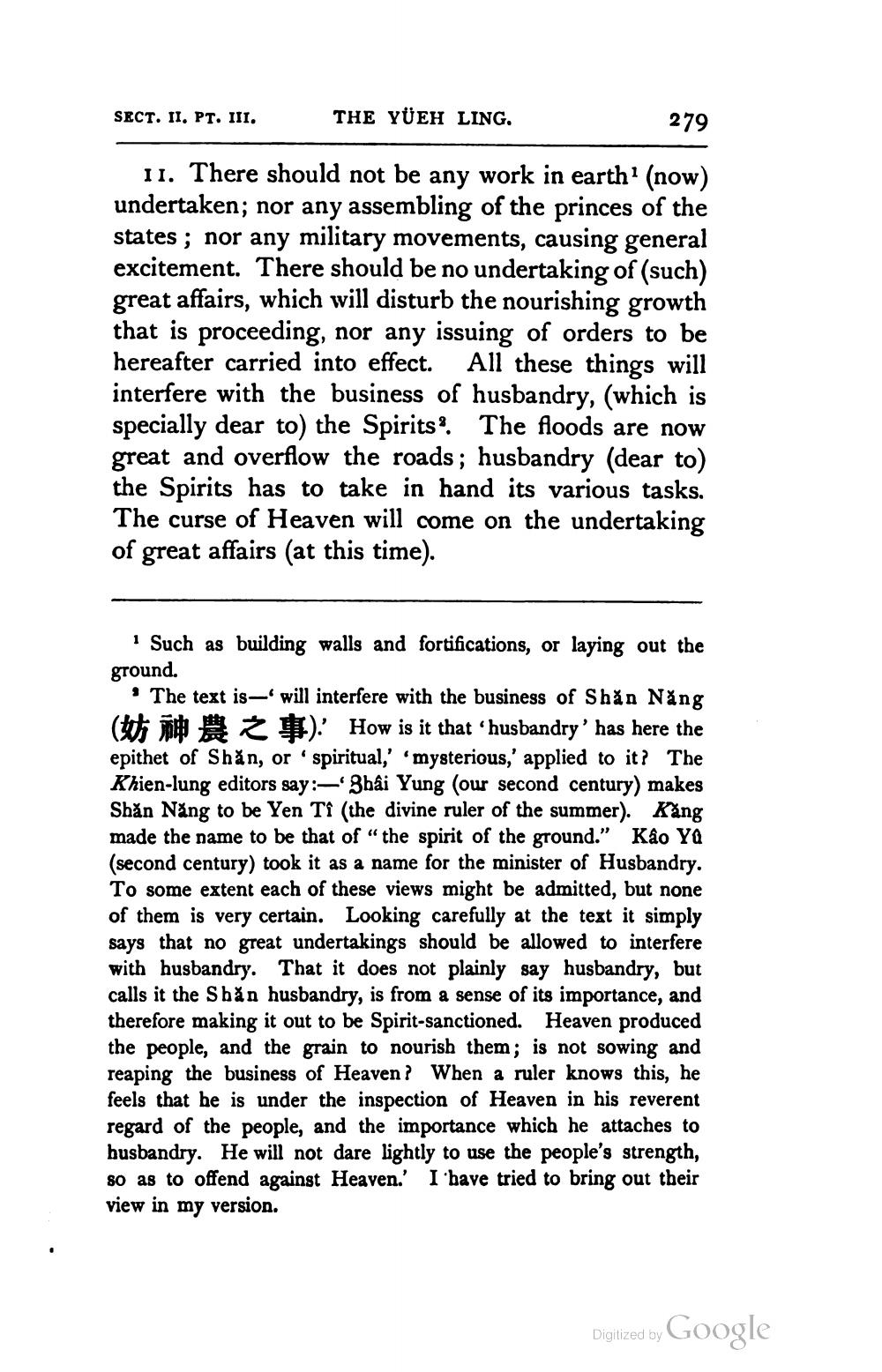________________
SECT. II. PT. III.
THE YÜEH LING.
279
11. There should not be any work in earth (now) undertaken; nor any assembling of the princes of the states; nor any military movements, causing general excitement. There should be no undertaking of (such) great affairs, which will disturb the nourishing growth that is proceeding, nor any issuing of orders to be hereafter carried into effect. All these things will interfere with the business of husbandry, (which is specially dear to) the Spirits. The floods are now great and overflow the roads; husbandry (dear to) the Spirits has to take in hand its various tasks. The curse of Heaven will come on the undertaking of great affairs (at this time).
Such as building walls and fortifications, or laying out the ground.
• The text is—will interfere with the business of Shăn Năng (teti m esa Ž ). How is it that “husbandry' has here the epithet of Shăn, or spiritual,' mysterious,' applied to it? The Khien-lung editors say:-Zhai Yung (our second century) makes Shăn Năng to be Yen Ti (the divine ruler of the summer). Kang made the name to be that of "the spirit of the ground." Kao Ya (second century) took it as a name for the minister of Husbandry. To some extent each of these views might be admitted, but none of them is very certain. Looking carefully at the text it simply says that no great undertakings should be allowed to interfere with husbandry. That it does not plainly say husbandry, but calls it the Shăn husbandry, is from a sense of its importance, and therefore making it out to be Spirit-sanctioned. Heaven produced the people, and the grain to nourish them; is not sowing and reaping the business of Heaven ? When a ruler knows this, he feels that he is under the inspection of Heaven in his reverent regard of the people, and the importance which he attaches to husbandry. He will not dare lightly to use the people's strength, 80 as to offend against Heaven.' I have tried to bring out their view in my version.
Digitized by Google




